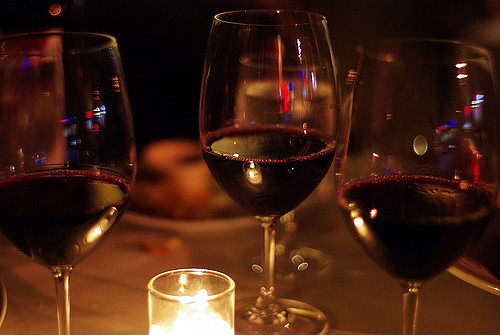Here’s how to emotionally manipulate your family with alcohol this holiday

When it comes to engineering the fickle emotions of humans, alcohol can do it all. It’s raised for successes and downed in sorrow. It can energize and relax us. It temporarily erases regrets while creating new ones. It’s liquid courage and a downer. It can smooth a first date or conjure tears alone. And this holiday—as with every holiday—it’s likely to both smother and ignite family blow-ups.
But not every drink offers the same mood maneuvering powers, according to a new study in BMJ Open. Sifting through drinking survey responses of nearly 30,000 people from 21 countries, researchers found that drinkers turn to different types of alcohol for different moods and purposes.
For instance, about 53 percent of respondents thought that red wine relaxed them, and 60 percent reported it made them sleepy. So, if you’re looking for a pacifier for any hot-headed in-laws this holiday, maybe turn to a mellow merlot. For your more enjoyable guests, go with a cocktail. Nearly 60 percent of respondents felt that spirits both energized them and boosted their confidence. And 42 percent said it made them feel sexy. But maybe keep the martinis away from that hot-headed relative—nearly 30 percent of the survey takers thought that spirits made them aggressive.
The researchers behind the study, led by Kathryn Ashton at Public Health Wales, say the data may help “better understand alcohol consumption behavior and… inform strategies and interventions to promote changes in consumption, particularly among heavier drinkers.
But, the researchers note, some of the data may be obvious to some drinkers. For instance, it might not be surprising that liquor makes some people feisty.
“For centuries, the history of rum, gin, vodka, and other spirits has been laced with violence,” co-author Mark Bellis, also of Public Health Wales, said in a statement. “This global study suggests even today consuming spirits is more likely to result in feelings of aggression than other drinks.”
For another calming option, you can go with beer. Nearly 50 percent of respondents said beer made them relaxed, and nearly 45 percent said it made them feel confident. It made 38 percent drowsy.
Of all the drinks, white wine was the most apathetic beverage. It was not strongly associated with any emotions. But only 18 percent said it made them tired.
Ashton and her colleagues took some demographic data into account, including age, gender, country of origin, and education levels. They found that women and younger drinkers were most likely to associate emotions with drinks—except for aggression. Men were more likely to associate aggression with alcohol of any kind. But the data backs up previous findings that male beer drinkers are less aggressive than male liquor drinkers.
The study has a lot of limitations. It’s an observational study based on self-reported data. There’s nothing to say that alcohol causes these emotions, just that these respondents think they do. There are confounding issues of recall bias, what activities people are doing while drinking certain drinks, whether they mix alcohols, and what moods they are in when they start drinking certain drinks.
That said, the perceptions may still be useful for crafting messages and interventions for problem drinking. For instance, the researchers notes that “alcohol already plays a large part in violence in many countries, but the concept that consumption of different alcohol products may be more likely to result in violence is rarely reflected in public health responses.”
BMJ Open, 2017. DOI: 10.1136/bmjopen-2017-016089 (About DOIs).